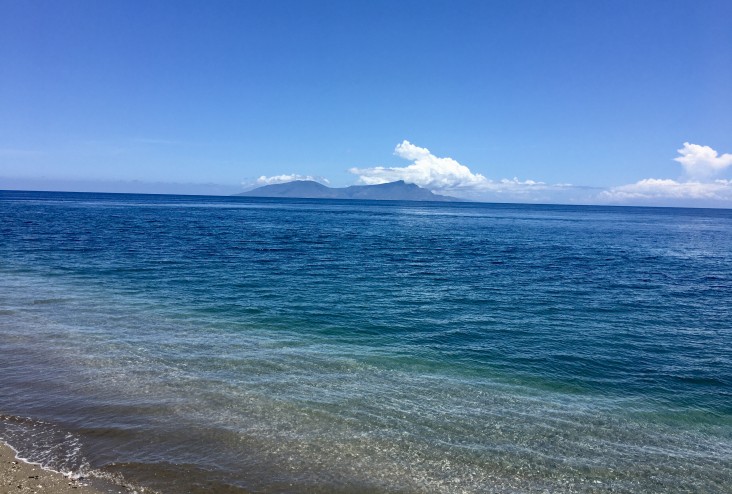Press Release Shim
Speeches Shim

For Immediate Release
DILI, TIMOR-LESTE — The U.S. Embassy in Timor-Leste and the United States Agency for International Development (USAID) are pleased to share that the renowned global environmental group, Mission Blue, has designated the pristine waters of the Ombai-Wetar Strait as a global “Mission Blue Hope Spot”. The USAID Tourism for All Project worked with the Association Turizmu Maritima Timor-Leste (ATM-TL) to achieve this designation. Today on World Oceans Day, the Embassy, USAID and many Timorese will celebrate this achievement.
The Hope Spot designation is important because it marks the waters of Timor-Leste as a place critical to the health of the world’s oceans. Hope Spots recognize, empower, and support communities and governments around the world in their efforts to protect their marine ecosystems.
“Designation of the Ombai-Wetar Strait as a Hope Spot is a significant step for the development of sustainable tourism and the protection of precious natural resources in Timor-Leste, which is a key goal of Timor-Leste and vital to our shared vision for the Indo-Pacific,” said U.S. Ambassador Kathleen Fitzpatrick. “The United States is proud to have contributed to this campaign. Congratulations to the ATM-TL and to Timor-Leste and thank you to Mission Blue and its founder, Dr. Sylvia Earle.”
With the designation, Timor-Leste joins a marine conservation network spanning more than 100 countries, benefiting from Mission Blue’s expertise and support in building collaboration between partners to advocate for legal protection of its Hope Spot, with increased visibility and opportunities for education and marketing through the organization’s global platform.
Former Timor-Leste President and Prime Minister José Ramos-Horta participated in the virtual celebration, noting the new designation “means that environmentally-aware tourists and scientists, they’ll all want to come and visit to study the Ombai-Wetar zone.”
He also recognized the value of the designation to tourism, one of the pillars of Timor-Leste’s drive to diversify its oil-dependent economy.
“I would like to thank the United States Ambassador Kathleen Fitzpatrick for her hard work and her efforts to increase financial support for Timor-Leste, with the focus on sustainable tourism,” Dr. Ramos Horta said. “I would also like to thank her for her leadership and USAID for its commitment to supporting the Tourism For All project. Tourism is not just for some of the people, it is for all of the people.”
Timor-Leste Director General of Tourism Jose Quintas congratulated ATM-TL for its success in securing the Hope Spot nomination.
“We are proud of the Hope Spot nomination,” he said. “It’s an advantage for Timor-Leste, but everyone needs to make a contribution to protecting the marine environment, especially in coastal communities, as well as in the private sector, the dive centers and marine tourism operators. The government also has to make sure that the regulations are implemented properly, continue to protect our marine biodiversity for future generations.”
ATM-TL President Professor Karen Edyvane praised the achievement for increasing the global tourism marketing potential of Timor-Leste. “Importantly, the Hope Spot also recognizes the ATM-TL and Timor-Leste’s commitment to developing community-based conservation and marine ecotourism livelihoods, and supporting improved ocean protection,” she said.
The Hope Spots initiative was founded by the renowned ocean explorer, scientist and founder of Mission Blue, Dr. Sylvia Earle. The Mission Blue alliance includes more than 200 respected ocean conservation groups and like-minded organizations.
USAID works in partnership with the government of Timor-Leste to support broad-based and effective development. Since 2002, the United States has provided $542 million in development assistance to Timor-Leste. USAID supports Timor-Leste in its efforts to build a more prosperous, healthy, and democratic country through programs that foster inclusive and sustainable economic growth, especially in the agriculture and tourism sectors; improve the health of the Timorese people, particularly women and children; and strengthen the foundations of good governance—all areas which are highlighted in Timor-Leste’s Strategic Development Plan 2011-2030. To learn more, visit: www.usaid.gov/timor-leste.

Comment
Make a general inquiry or suggest an improvement.